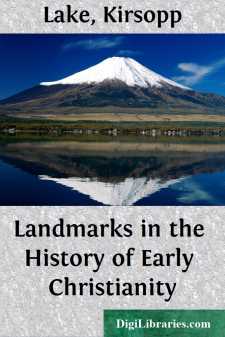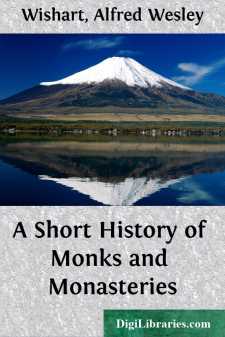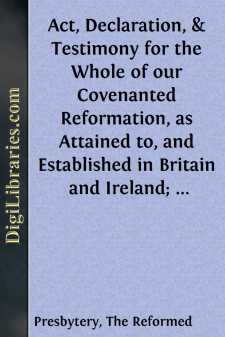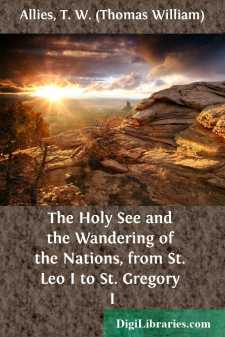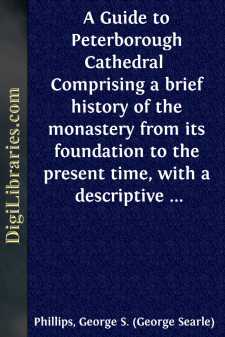Religion
- Agnosticism 2
- Antiquities & Archaeology 21
- Atheism 12
- Biblical Criticism & Interpretation 15
- Biblical Meditations 3
- Biblical Reference 1
- Biblical Studies 11
- Buddhism 8
- Christian Church 52
- Christian Education 5
- Christian Life 26
- Christianity 60
- Cults 2
- Devotional 6
- Eastern 2
- Education 4
- Eschatology 1
- Ethics 3
- General 60
- Gnosticism 1
- Hinduism 15
- History
- Holidays 10
- Inspirational 1
- Islam 8
- Judaism 3
- Leadership 1
- Meditations 3
- Monasticism 1
- Mysticism 11
- Philosophy 4
- Prayer 26
- Prayerbooks 5
- Religion & Science 12
- Sermons 54
- Spirituality 53
- Theism 2
- Theology 17
- Theosophy 15
History Books
Sort by:
by:
John Foxe
PREFACE. This work is strictly what its title page imports, a compilation. Fox's "Book of Martyrs" has been made the basis of this volume. Liberty, however, has been taken to abridge wherever it was thought necessary;—to alter the antiquated form of the phraseology; to introduce additional information; and to correct any inaccuracy respecting matters of fact, which had escaped the author...
more...
by:
George Gillespie
ADVERTISEMENT. (Transcriber’s Note: This book is an 1846 reprint of George Gillespie’s books, which were originally published separately. Each is reprinted here with its original title page and other front matter. The paper book had no page numbers; each book is transcribed here with its own page numbering, which may have no correspondence with the publisher’s idea of the page numbers.) In...
more...
by:
John Doyle Lee
INTRODUCTION THE MORMON PURPOSE Almost a half century ago, being in 1857, John Doyle Lee, a chief among that red brotherhood, the Danites, was ordered by Brigham Young and the leading counselors of the Mormon Church to take his men and murder a party of emigrants then on their way through Utah to California. The Mormon orders were to "kill all who can talk," and, in their carrying out, Lee and...
more...
by:
Kirsopp Lake
GALILEE At first sight the historian of religions appears to be faced by a number of clearly distinguished entities, to each of which he feels justified in giving the name of a separate religion; but on further consideration it becomes obvious that each one of these entities has been in a condition of flux throughout its history. Each began as a combination or synthesis of older forms of thought with...
more...
I The monk is a type of religious character by no means peculiar to Christianity. Every great religion in ancient and modern times has expressed itself in some form of monastic life. The origin of the institution is lost in antiquity. Its genesis and gradual progress through the centuries are like the movement of a mighty river springing from obscure sources, but gathering volume by the contributions...
more...
INTRODUCTION. The Presbytery, soon after their erection, being convinced of the expediency and necessity of emitting a judicial testimony, to discover to the world the principles upon which, as a judicatory of the Lord Jesus Christ, they stood, in opposition to the different, so called, judicatories in the land; together with the agreeableness of these principles to the Word of God, the only rule of...
more...
by:
John Henry Blunt
CHAPTER I A.D. 33-A.D. 38 Before entering upon an account of the Foundation and After-History of the Christian Church, it may be well to consider what that Church really is. Twofold nature of the Church. The Church may be regarded in a twofold aspect, as an external Corporation, and as a spiritual Body. 1. An external Kingdom. In the first light it is a Kingdom, in the world, though not of the world,...
more...
THE LETTERS OF THE POPES AS SOURCES OF HISTORY. Cardinal Mai has left recorded his judgment that, "in matter of fact, the whole administration of the Church is learnt in the letters of the Popes". I draw from this judgment the inference that of all sources for the truths of history none are so precious, instructive, and authoritative as these authentic letters contemporaneous with the persons...
more...
INTRODUCTION "The pleasant books, that silently amongOur household treasures take familiar places,Are to us, as if a living tongueSpake from the printed leaves, or pictured faces!" The aim of the Author in preparing this volume has been to put in a form, convenient for preservation and future reference, a brief historical sketch of the work and workers connected with the founding and...
more...
From the foundation of the monastery by Peada, a.d. 655, to its destruction by fire in the reign of Henry the First;—embracing a period of 461 years. The history of our monastic establishments is but little regarded and as little known. The obscurity in which all monastic institutions is involved renders it difficult to give any certain and positive information respecting the origin of the building...
more...





